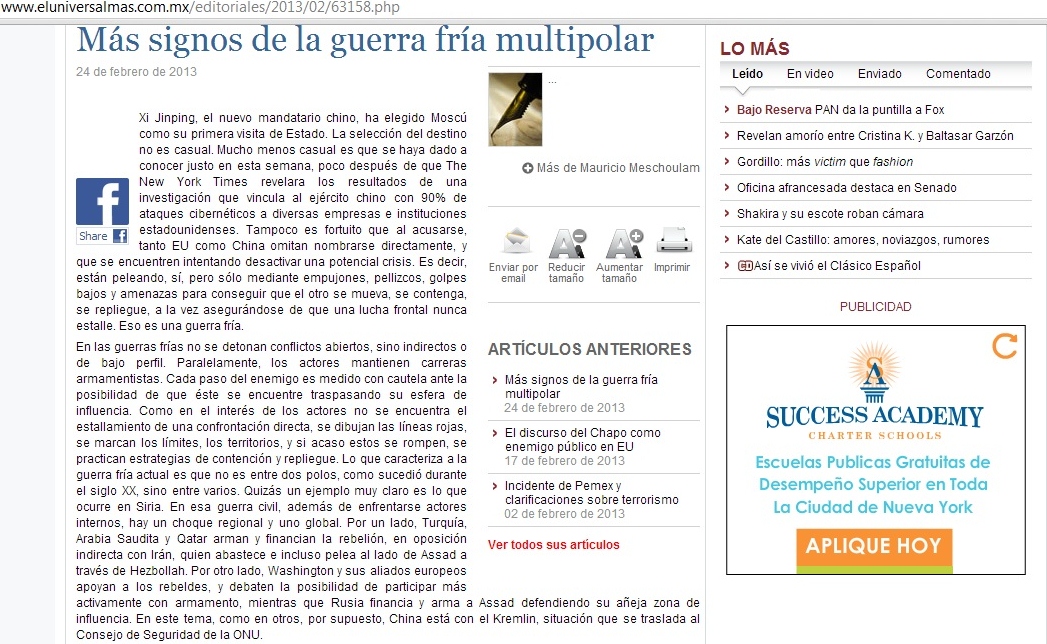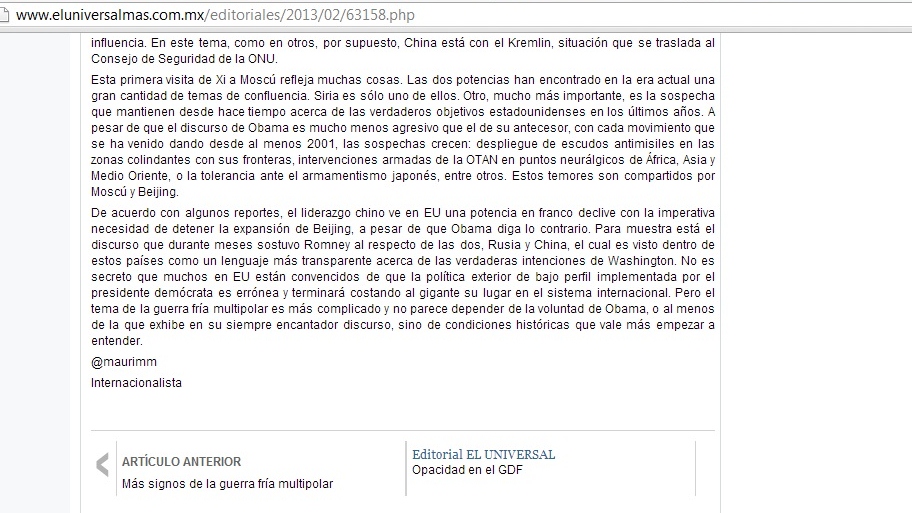More Signs of a Multipolar Cold War
A cold war isn't characterized by open conflicts but rather low-profile, indirect ones. At the same time, the countries involved are in an arms race. On all sides, every move that is made is carefully calculated not to overstep its bounds. As it is in all countries' interests to avoid direct confrontation, red lines are drawn to mark the limits, and in the event that they are crossed strategies of containment and withdrawal are used. What characterizes the current cold war is that it isn't between two poles, as we saw in the 20th century, but rather between several. Perhaps a clear example is what is happening in Syria. Within the civil war, alongside the internal conflict among Syrians, there is a regional and global clash. On one side, Turkey, Saudi Arabia and Qatar have armed and financed the rebellion in direct opposition to Iran, who is supplying and even fighting on the side of Assad through Hezbollah. Meanwhile, Washington and its allies in Europe support the rebels and are debating the possibility of armed intervention, while Russia continues to finance and arm Assad, defending its sphere of influence. In this situation, as in others, China is on the Kremlin's side, which is an issue now for the UN Security Council.
Xi’s first visit to Moscow reflects many things. The two powers have recently come to see eye to eye on a large number of issues. Syria is only one of them. Another much more important issue is the suspicion that they harbor about what the true intentions of the U.S. have been in recent years. Despite the fact that Obama's discourse is much less aggressive than that of his predecessor, suspicions continue to grow with each move he makes. Among the worries shared by Moscow and Beijing are the spread of scud missiles around their borders; armed interventions by NATO at crucial points in Africa, Asia and the Middle East; and the tolerance of Japan's arms build-up.
According to some reports, the Chinese leadership sees a clear decline of power in the U.S. in its efforts to stop the expansion of Beijing’s influence, though Obama denies this. Consider Romney's speech about Russia and China, which is seen by many countries as containing more transparent language with regard to Washington's true intentions. It's no secret that many in the U.S. are convinced that the low-profile foreign policy implemented by the Democratic president is erroneous and will end up costing the giant its place in the international system. However this multipolar cold war is more complicated; it doesn't seem to depend on Obama as much as it does on a history that is worth being better understood.


